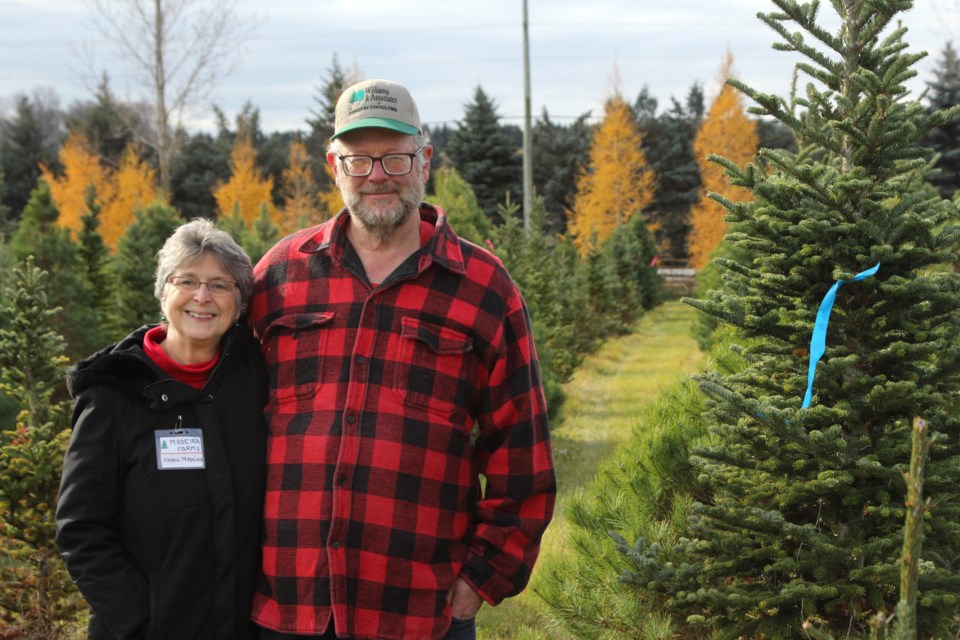If you’re looking to harvest a Christmas tree this year, start looking now and don’t be picky.
Christmas tree farmers have been facing a tree shortage in recent years, and this year will be no exception. Local farmers have had to reduce their hours and close early December as the demand far outweighs the supply.
Last year, Madeira Farms in Rockwood closed early for the first time as people from neighbouring cities flocked to their 93-acre farm.
“We had 3,000 people, physical bodies, in a period of 10 days of being open. And most of that was just half days because we just did two weekends and we had to close,” said Karen Madeira who owns Madeira Farms in Rockwood with her husband Peter Williams, a forester.
Madeira will open to the public Nov. 27th.
“We moved in 1997 and my husband's a forester and the first thing he did in the spring was to plant 500 trees. And then every year we've planted more and more so we have a lot of trees.”
Shirley Brennan, executive director of the Canadian Christmas Tree Association said the shortage isn’t unique to Ontario or Canada but rather something that is seen across North America.
With growing multi-generational families who want their own trees, new Canadians embracing the annual tradition, spurts of drought in Ontario and environmentally-conscious people looking for natural products, she said the demand for trees has certainly increased.
“The demand has been so great in the last few years, the industry in Canada went from a $53 million industry to a $100 million industry from 2015 to 2020. We could not have predicted that increase of people coming out for a new real tree,” said Brennan.
She also states that with the 2008 recession, many tree farmers did not expand their business by planting more trees in purchased or leased land. Trees planted during that time are now ready to harvest.
"It takes anywhere between eight and 12 years depending on species to get a mature tree that is marketable,” said Brennan.
“So somebody that was up to capacity with their trees might have bought more property or leased more property and back then due to economic unrest, they didn't. They didn't expand at that time. And now the price of land for even leased land has skyrocketed, then it's just not feasible.”
“We close early because we're in a situation where we can't remain open without sort of devastating the stock that we have,” said Mike Rinas who co-owns Rinas Christmas Trees in Rockton with his brother Eric Rinas. He said the farm would stay open right until Christmas nearly three years ago because it always had enough trees to meet the demand.
“Other farms were typically open as well for the full season but now all the neighbouring farms are fairly sold out.”
Brennan explains that a Christmas tree farmer usually sells about 30 per cent of their crop per year so they have enough for the next year. So while it may look like trees are ready and available, they may not be ready to harvest just yet.
“Every Christmas tree farmer knows their numbers and we're seeing more and more of them shutting down early,” said Brennan.
Brennan urges Canadians to rather than deal with the shortages of their favourite tree, look for other species.
“There's so many different species of trees out there,” said Brennan. "Just step out of your comfort zone and see what type of species the farmer actually grows.”
“We are so fortunate that our harvest, which is the final harvest of the year, just happens to be attached to an amazing holiday with it,” said Brennan.
